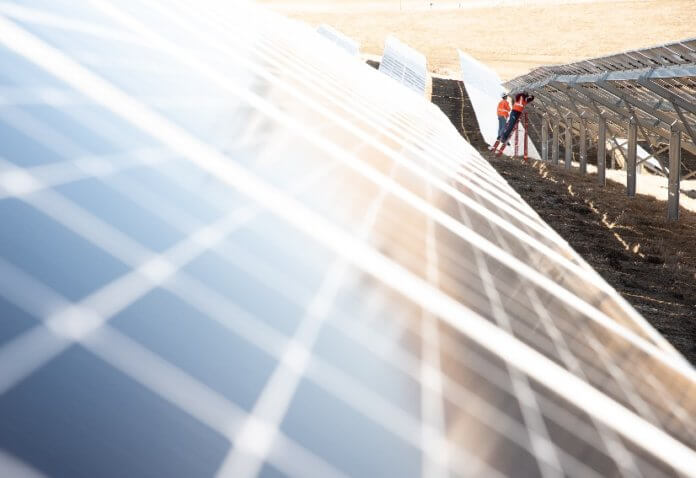Organic Valley, a producer of organic products and a U.S. cooperative of organic farmers, is now sourcing 100% of its electricity from renewable sources.
The construction of three new community solar projects, totaling 12.67 MW, is now complete, making the cooperative entirely powered by renewables. These solar projects are part of the 32 MW Butter Solar portfolio, which is owned and operated by BluEarth Renewables US.
To reach its 100% renewable electricity commitment, set forth in 2017, Organic Valley collaborated with OneEnergy Renewables and a group of Midwestern municipal utilities, referred to as the Upper Midwest Municipal Energy Group. In late 2018, BluEarth Renewables acquired the Butter Solar portfolio and began construction in January of this year. Butter Solar will provide 23,000 people across 10 Midwest communities with reduced energy costs for more than 25 years.
“Our community solar partnership allows us to share the benefits of solar energy with our rural neighbors, advancing our mission to care for the people and farms we work with, as well as our planet,” says Bob Kirchoff, CEO of Organic Valley. “Just as ours has done, community-scale solar projects can also create meaningful and good-paying jobs where they are needed most.”
“With the construction of the entire Butter Solar Portfolio nearing completion, we are proud to partner with organizations such as Organic Valley and make these valuable solar projects a reality for the local communities,” says Jamey Fitzgibbon, executive vice president of engineering and construction of BluEarth Renewables. “As we add more renewable energy to the power grid every day, we are committed to creating a more sustainable environment for generations to come.”
In addition to the economic benefits of these municipal solar projects, the sites will accommodate grazing sheep and pollinator habitats.
For more than 25 years, Organic Valley will buy renewable energy credits (RECs) from the three new solar projects. Other organizations have also agreed to buy RECs from their own project or groups of projects, as part of a shared commitment to lower their carbon footprints.
“It was the combined financial impact of all the REC partners that enabled the projects to be financially viable; scaling up is what made this possible,” says Stanley Minnick, energy services and technology manager of Organic Valley.
To celebrate the achievement, Organic Valley held a ribbon-cutting ceremony today at the Cashton solar site in Wisconsin.




